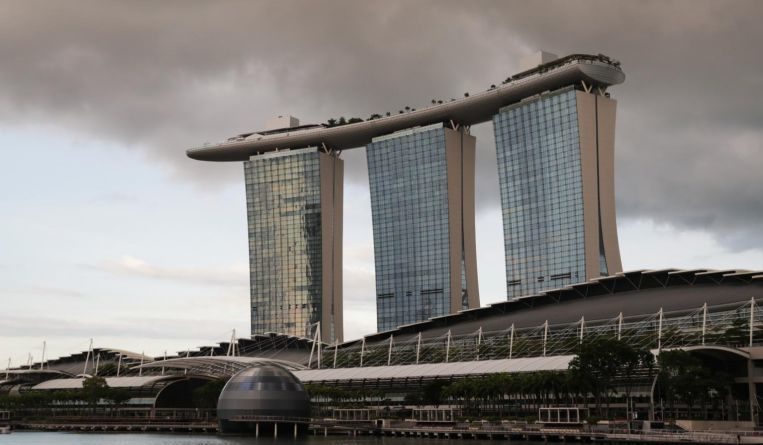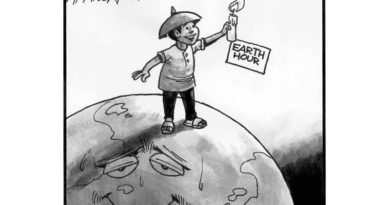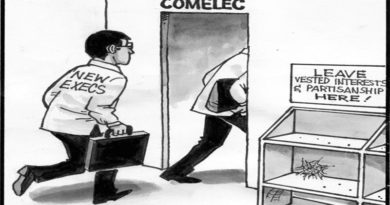BIZ-TOURISM: SINGAPORE- Economists expect tepid recovery from Singapore’s deepest economic slump while businesses hold off hiring
Travel and tourism will continue to bear the brunt of the pandemic, and full revival of construction activities may take longer than previously expected.
However, most economists expect demand for select export goods and robust demand for finance and insurance as well as information and communications services to help the economy start its climb out of the depths of the recession.
Mr Edward Lee, Standard Chartered Bank’s chief economist for Asean and South Asia, said: “Any pickup in second-half growth is likely to be tepid.”
The resurgence of Covid-19 infections in places including Australia, Hong Kong and Japan, resulting in reimposition of mobility restrictions, will likely keep the pace of reopening gradual, he said.
Also, geopolitical tensions and the risk of corporate indebtedness may also depress investment sentiment, he added.
“On a more positive note, Singapore may continue to benefit from pharmaceutical and electronics demand. Digital payments and solutions activity may also continue to support the finance and infocomm sectors,” said Mr Lee.
While most economists agreed that delayed reopenings of international borders, particularly for travel, will remain a drag on any recovery, some sectors – such as pharmaceuticals, electronics, gold and oil products – are likely to perform relatively better and support exports and gross domestic product (GDP) growth in the second half.
Mr Irvin Seah, senior economist at DBS Bank, said demand for biomedical products, electronic components and semiconductors has remained strong as companies globally turned to digital solutions to overcome the disruptions to business processes.
“The overall manufacturing sector is expected to remain an outperformer for the year,” he said.
Enterprise Singapore yesterday upgraded its 2020 forecasts for non-oil domestic exports, projecting 3 per cent to 5 per cent year-on-year growth, compared with an earlier estimate of a 1 per cent to 4 per cent fall.




Those pockets of resilience may still not be enough to reverse the surge in unemployment, as job creation usually lags behind economic growth by several months.
Mr Joshua Yim, chief executive of recruitment firm Achieve Group, said that while his business has picked up slightly after a major plunge during the circuit breaker period, firms are generally still cautious about hiring.
Interest in hiring has fallen sharply among clients to just 55 per cent to 60 per cent of that for a typical year, he pointed out. “I think it’s quite reflective of employers’ confidence.”
Some of Mr Yim’s clients have said the trajectory of both the pandemic and the economy is still ambiguous, and this is stopping them from hiring or considering retrenchments.
But there are sectors where companies are still looking to expand their payroll. Firms are seeking workers in infocommunications technology roles and in manufacturing, especially those in the semiconductor sub-sectors, Mr Yim said.
For instance, precision engineering firm Akribis has been actively hiring, though many candidates are reluctant to sign up as starting salaries have dropped below their expectations.
Akribis chief executive Leow Yong Peng said: “These traditional mechanical engineering, electrical engineering jobs have lost their appeal to the younger generation.”
These jobs are fundamental to equipment building and for the company to compete with lower-cost manufacturing bases elsewhere, he said. Also, the Covid-19 travel curbs have made it difficult to hire foreigners, Mr Leow added.
The Ministry of Trade and Industry yesterday updated its full-year GDP forecast to a contraction of 5 per cent to 7 per cent in 2020, compared with the previous forecast range of a 4 per cent to 7 per cent contraction.
Mr Lee of Standard Chartered said he will maintain his 2020 growth forecast of a 6 per cent shrinkage.
DBS’ Mr Seah, however, lowered his 2020 forecast to a 6.5 per cent contraction, down from the economy shrinking 5.7 per cent previously. At the same time, he revised up his full-year GDP growth forecast for next year to 5.5 per cent, from an earlier 3.5 per cent.
.


.


SIGN UP TO RECEIVE OUR EMAIL
.
The most important news of the day about the ASEAN Countries and the world in one email: [email protected]
8.12.2020


 Singapore’s recovery from its
Singapore’s recovery from its 






